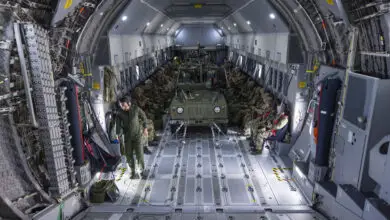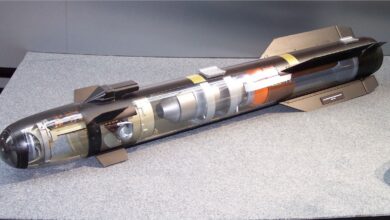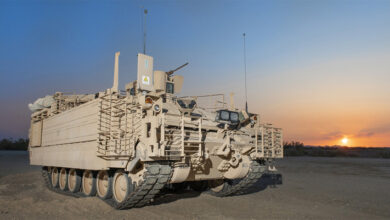UK signs memorandum with Saudi Arabia for sale of 48 Typhoon multirole fighter jets
Saudi Arabia has signed a Memorandum of Intent with the U.K. government to purchase 48 Eurofighter Typhoon multirole fighter jets, a BAE Systems release said.
The aim of the MOI is to “finalise discussions for the purchase of 48 Typhoon Aircraft,” the Friday, March 9 release filed with the London Stock Exchange said. “We are committed to supporting the Kingdom as it modernises the Saudi Armed Forces and develops key industrial capabilities critical to the delivery of Vision 2030.”
The agreement is understood to have been signed at RAF Northolt in north London by U.K. Defence Secretary Gavin Williamson and Crown Prince of Saudi Arabia, Mohammad Bin Salman Al Saud who is in the U.K. on a three-day visit, Jane’s reported.
The Royal Saudi Air Force currently has 72 Eurofighter Typhoons in its inventory. The aircraft is manufactured by a consortium that includes Leonardo, Airbus, and BAE Systems.
Charles Woodburn, CEO of BAE Systems, said: “The MOI between the Saudi and UK Governments is a further endorsement of Typhoon’s world class credentials as a proven, highly capable swing-role aircraft.”
The U.K. government has not yet confirmed or commented on the announcement.
Opposition politicians and activists in the U.K. have campaigned to stop arms sales to Saudi Arabia over human rights issues and the war in Yemen. Labour leader Jeremy Corbyn this week accused Prime Minister Theresa May of failing to take Saudi Arabia to task over possible war crimes in Yemen, and said the government accept partial responsibility for civilian casualties in the country.
Corbyn’s spokesperson later said: “Britain has not only increased arms supplies to Saudi Arabia dramatically since the start of the war … but British military personnel advise the Saudi air force and military on targeting – and so there is a direct involvement in the conduct of the war.”
Saudi spending spree
In recent months, Saudi Arabia has signed a number of high-profile defense deals.
On January 18, the U.S. approved the $500 million sale to Saudi Arabia of Patriot and HAWK missile system services. Earlier that month, Lockheed subsidiary Sikorsky was awarded a $194 million contract for 17 UH-60M Black Hawk utility helicopters for Saudi Arabia.
In December, Boeing was awarded a $480 million contract for support to Saudi Arabia’s F-15 jet fleet, and Raytheon was awarded a $302 million contract for more than 600 Joint Standoff Weapon glide bombs.
The purchases come as Qatar also steps up its military spending. In December, Lockheed Martin was awarded a contract to produce Patriot missiles for the Qatar and Saudi Arabia, as well as for the U.S.
Saudi Arabia, the United Arab Emirates, Bahrain and Egypt cut all ties – including air and sea links – with Qatar on June 5, accusing it of being too close to Iran, Saudi’s major regional rival, and of supporting Islamist extremists. Qatar denies the allegations and has accused the Saudi-led group of attempting to incite regime change.
On March 7, NATO and Qatar signed an agreement allowing NATO personnel to enter and transit Qatar, and to use the Al-Udeid Air Base, a deal NATO said will facilitate its missions and operations in the region, including the Resolute Support Mission in Afghanistan.
UK hawks fighters
In December, Qatar signed £6 billion deal with U.K. for 24 Typhoon fighter jets, Brimstone and Meteor missiles and Paveway IV bombs. The agreement also included a “clear intention to proceed with the purchase of Hawk aircraft,” according to the U.K. MoD, and the establishment of a Joint Operational Squadron for operations and training which to ensure combat readiness for all Qatari pilots and technicians.
In February, the U.K. Ministry of Defence submitted to Belgium its final proposal for 34 Eurofighter Typhoon swing-role combat aircraft plus support, training and cooperation on cyber capabilities in the competition to replace Belgium’s F-16s.












2 Comments